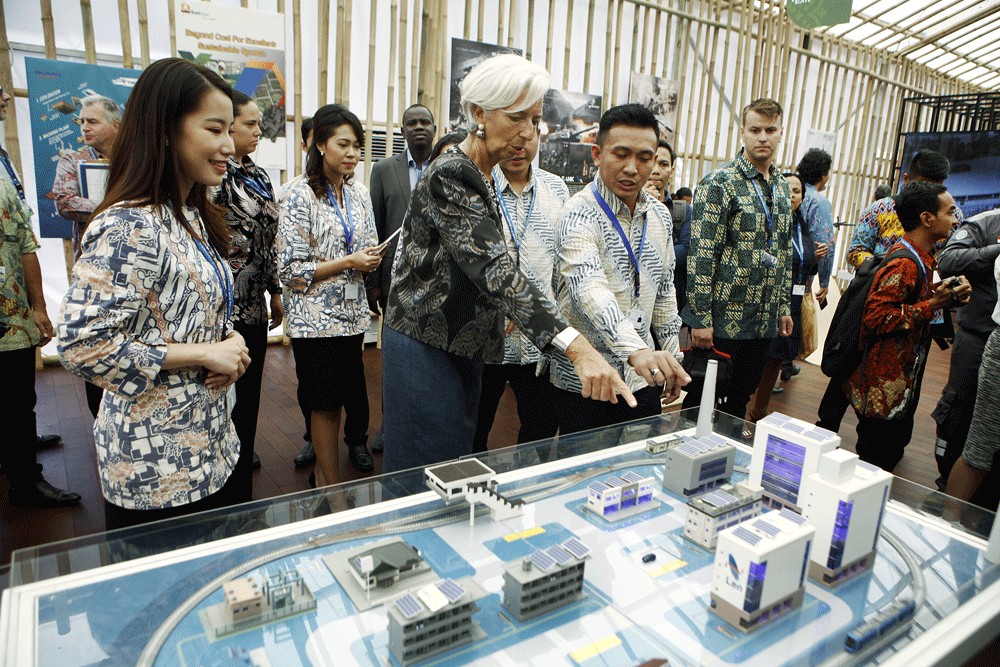Popular Reads
Top Results
Can't find what you're looking for?
View all search resultsPopular Reads
Top Results
Can't find what you're looking for?
View all search resultsIndonesia needs to issue more reform packages to spur economic growth, IMF says
Government revenue remains below peer countries and is insufficient to finance the authorities’ development goals, the IMF noted.
Change text size
Gift Premium Articles
to Anyone
 Funding support: International Monetery Fund managing director and chairwoman Christine Lagarde (center) visits the Indonesian Pavilion during the 2018 IMF-World Bank Group Annual Meetings in Nusa Dua, Bali.
IMF estimates Indonsia’s GDP growth will remain stable at 5.2 percent in 2019 and 2020.
(The Jakarta Post/Zul Trio Anggono )
Funding support: International Monetery Fund managing director and chairwoman Christine Lagarde (center) visits the Indonesian Pavilion during the 2018 IMF-World Bank Group Annual Meetings in Nusa Dua, Bali.
IMF estimates Indonsia’s GDP growth will remain stable at 5.2 percent in 2019 and 2020.
(The Jakarta Post/Zul Trio Anggono )
T
he executive board of the International Monetary Fund (IMF) commended the authorities’ policy response in the face of strong external headwinds in 2018, which supported positive economic performance.
While noting the favorable economic outlook, the directors encouraged the authorities to remain vigilant against risks, including from capital flow reversals, considering Indonesia’s reliance on external financing.
In their assessment report on the Indonesian economy titled the 2019 Article IV Consultation with Indonesia, which was released on Thursday, the directors considered that achieving higher potential growth requires a comprehensive structural reform package, including higher domestic revenue mobilization and financial deepening, which would reduce vulnerabilities and facilitate complementary reforms in human capital, infrastructure and labor and products markets.
The executive board estimated Indonesia’s GDP growth would remain stable at 5.2 percent in 2019 and 2020, and rise to 5.3 percent over the medium term, underpinned by robust domestic demand.
The directors welcomed the appropriate focus of the near-term policy mix on protecting macroeconomic and financial stability, safeguarding buffers, and addressing vulnerabilities. They also welcomed the authorities’ continued efforts to protect fiscal buffers, including with the elimination of the primary deficit in 2018, and improve the quality of spending by rebalancing expenditure toward infrastructure, education, health, and social safety nets.
However, they noted that government revenues remain below peer countries and was insufficient to finance the authorities’ development goals. In this context, they highlighted the critical need to implement a medium-term revenue strategy, which combines well-sequenced and prioritized tax policy and administration reforms, to finance priority spending and structural reforms, and lessen reliance on external financing. (hen)









